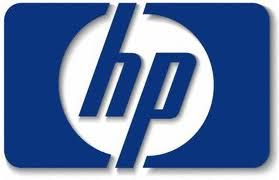HP Warns Oracle It May Sue Over Itanium Decision

HP has threatened Oracle with legal action over its decision to end support for Intel’s Itanium platform
Hewlett-Packard officials are not happy at Oracle’s decision to end software development for Intel’s Itanium platform.
They reportedly sent the software giant a notice saying the decision violated contractual agreements with HP and harmed the companies’ 140,000 shared customers.
HP, in the midst of its Discover 2011 show in Las Vegas, reportedly sent the letter to Oracle 8 June, and threatened legal action if Oracle doesn’t comply.
Legal Action
“It is our hope that Oracle will honour its commitments to HP and to our shared customers,” HP officials said in a statement. “However, if Oracle continues to disregard its commitments, and continues to engage in conduct designed to deny choice and harm competition, we will take whatever legal actions are available to us necessary to protect our customers and the significant investments they have made.”
 Oracle executives in March, citing conversations with Intel engineers, announced they would no longer develop software for the Itanium platform. They said it had become clear that Intel was phasing out Itanium in favour of concentrating on its x86-based Xeon processors for servers.
Oracle executives in March, citing conversations with Intel engineers, announced they would no longer develop software for the Itanium platform. They said it had become clear that Intel was phasing out Itanium in favour of concentrating on its x86-based Xeon processors for servers.
“Intel management made it clear that their strategic focus is on their x86 microprocessor and that Itanium was nearing the end of its life,” Oracle officials said in a brief statement at the time.
The move drew a sharp reaction from both Intel and HP. Intel CEO Paul Otellini quickly issued a statement that his company was pursuing an aggressive roadmap for Itanium that includes the next generation, code-named “Poulson,” which will feature a new microarchitecture that will form the basis of Itanium development for several years.
HP executives accused Oracle of cynically putting competitive desires ahead of their customers’ best interests. HP said Oracle was making the move in hopes of propping up its own struggling SPARC/Solaris hardware portfolio, which the company inherited last year through its $7.4 billion (£4.5bn) acquisition of Sun Microsystems. The Sun deal brought Oracle – once a close partner of HP – into more direct competition with the server maker in the area of data centre hardware.
Bad Blood
It also was only part of a series of incidents in the crumbling relationship. Last year, after Mark Hurd resigned as HP’s CEO amid accusations that he violated the company’s business policies to cover up a relationship with an HP contractor, Oracle CEO Larry Ellison sharply criticised the HP board of directors, then hired Hurd as president of his software company.
Then came Oracle’s Itanium announcement. The Itanium platform, which offers a different architecture than the x86 chips, initially was a joint project of HP and Intel in the 1990s. Intel eventually took over Itanium development, though HP is by far the top consumer of Itanium chips, which are used in the server maker’s high-end Integrity and NonStop systems. Many customers of the Itanium-based servers run Oracle software – particularly the database products – on them, HP has said.
Over the past few months, HP has sought to recruit both channel partners and customers to pressure Oracle to reverse its decision.
Surveys have indicated that a large number of Oracle users are unhappy with Oracle’s decision, many of whom see the move as having less to do with Itanium and more to do with taking a shot at HP. They also have said they see the Itanium move as a first step in a campaign aimed at forcing customers to adopt Oracle technology, a campaign they fear will include ending support for IBM’s Power systems and increasing costs to users of non-Oracle Linux variants.